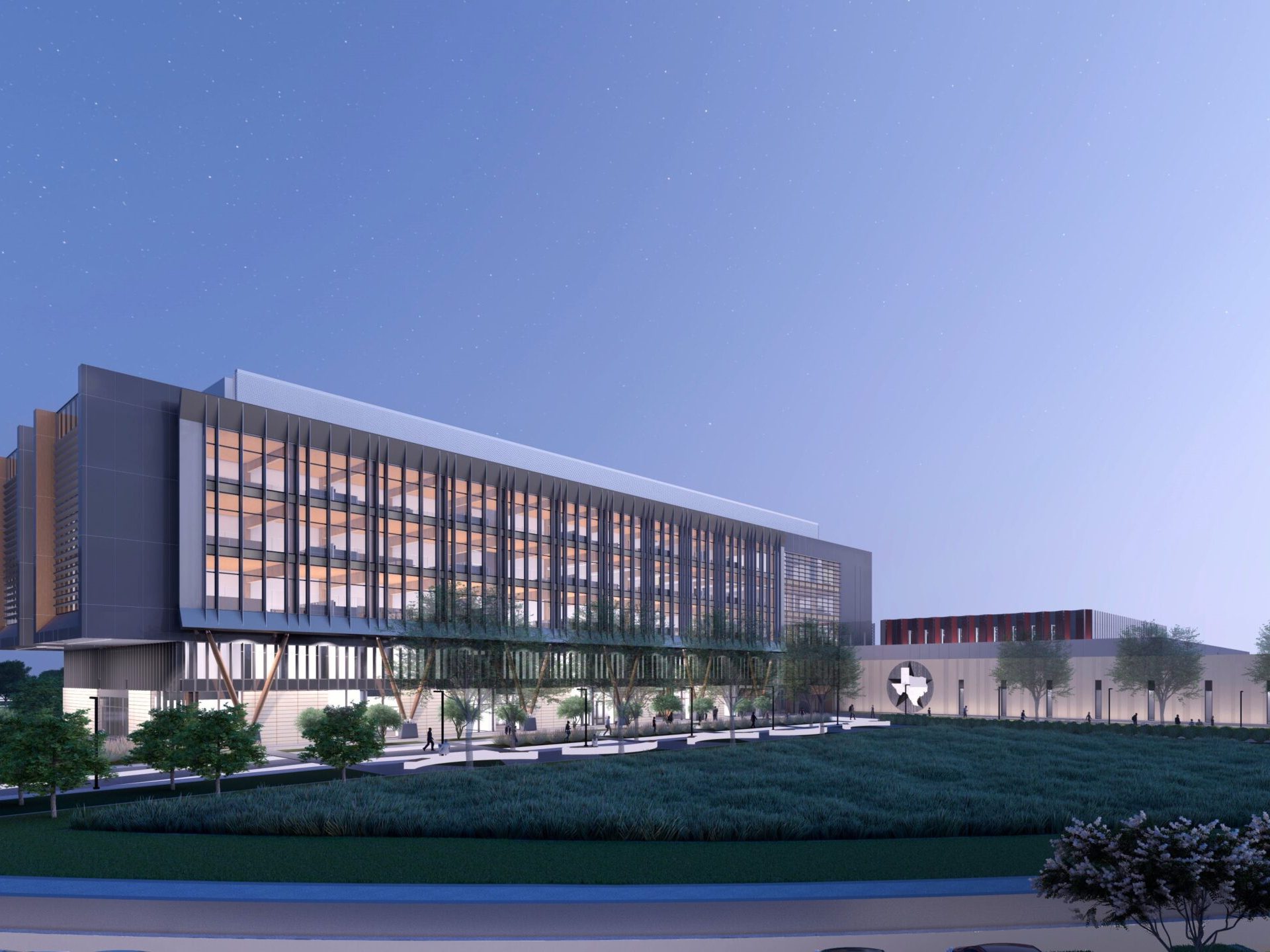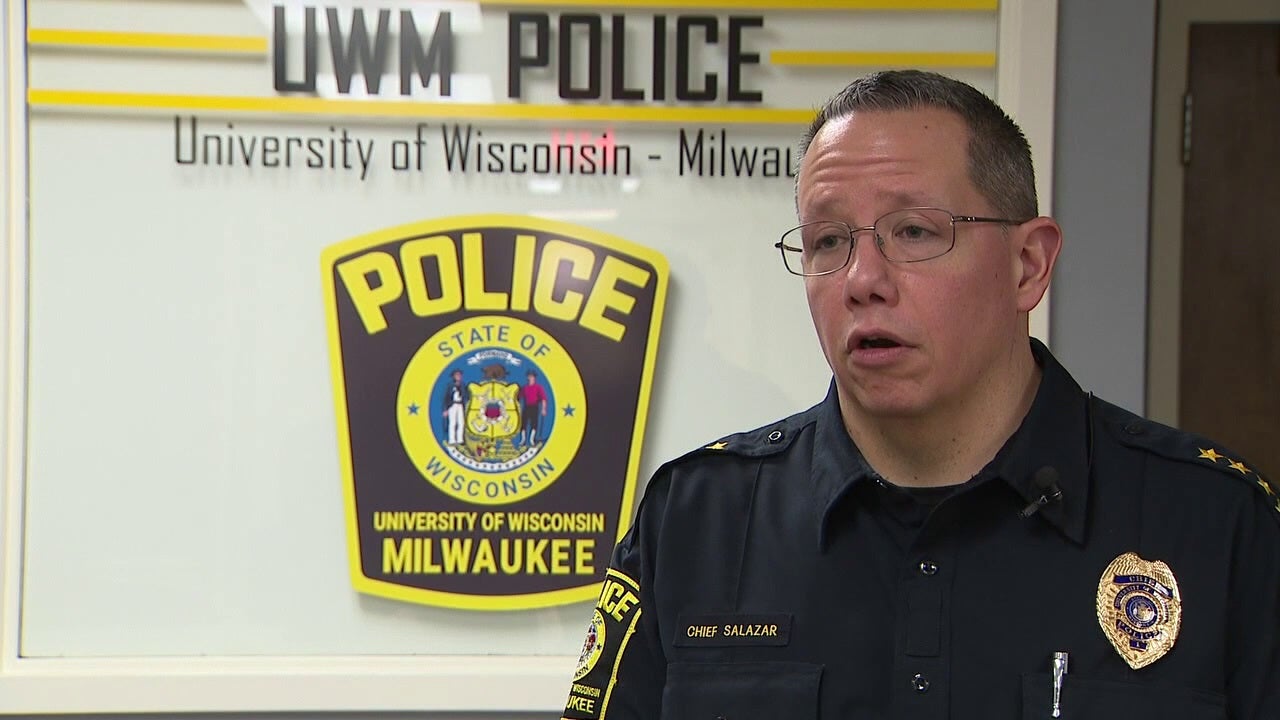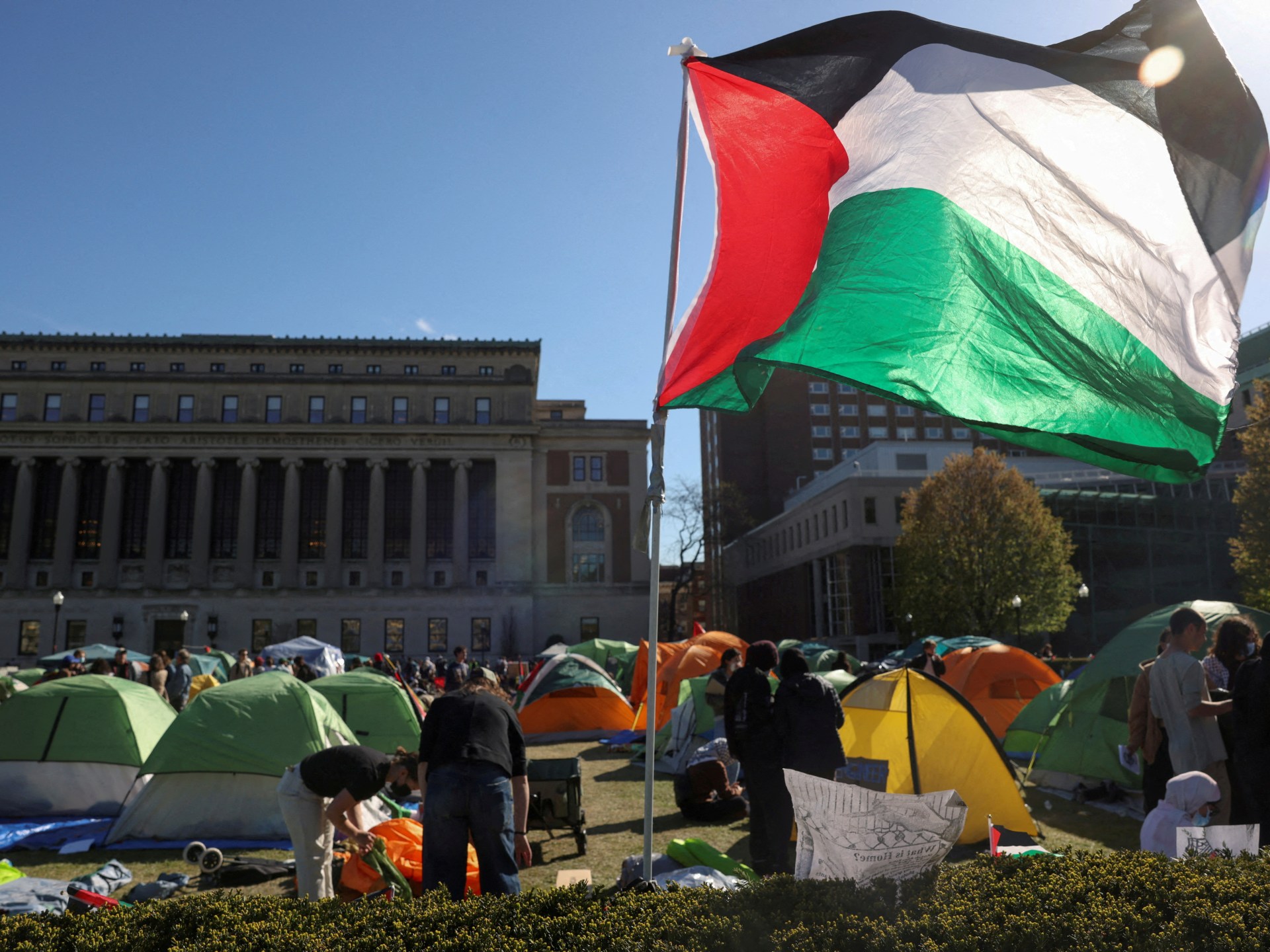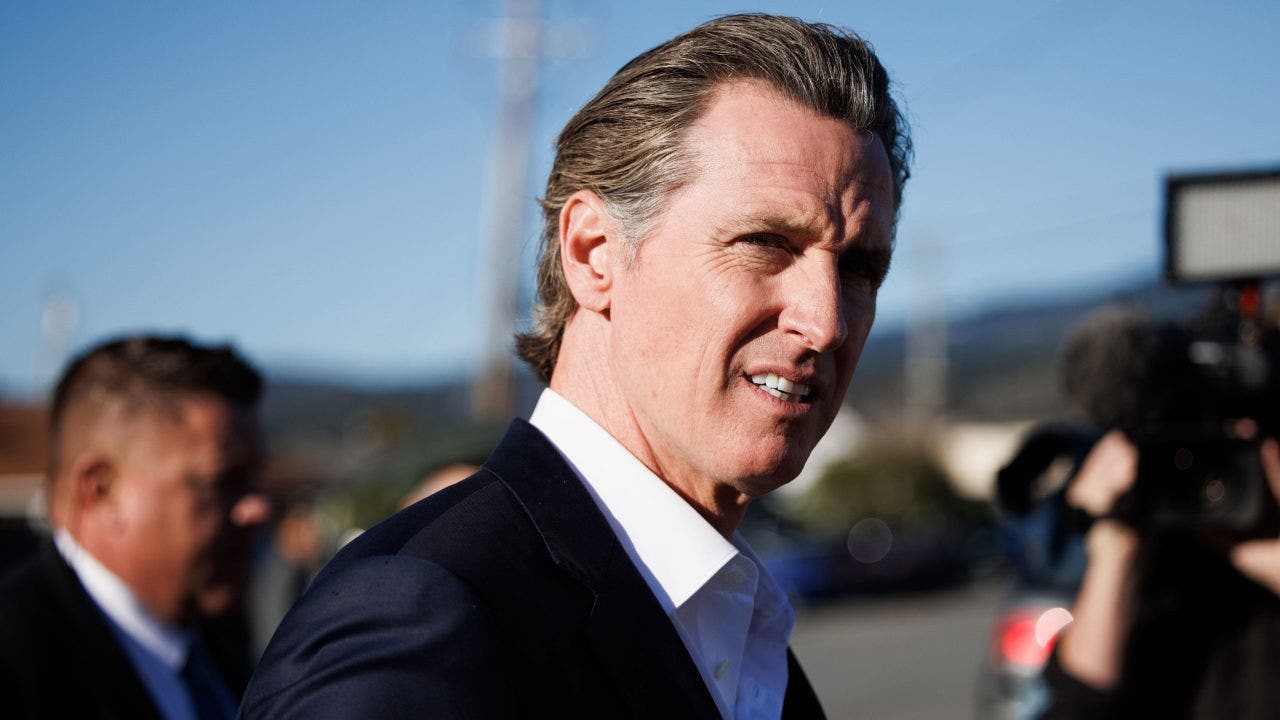Austin, TX
Texas ban on university diversity efforts provides glimpse of future across GOP-led states – Maryland Daily Record
AUSTIN, Texas — The dim lighting and vacant offices were the first clues.
Other changes struck Nina Washington, a senior at the University of Texas, when she returned to her favorite study spot from winter break. The words “Multicultural Center” had been taken off the wall, erasing an effort begun in the late 1980s to serve historically marginalized communities on campus. The center’s staff members were gone, its student groups dissolved.
“Politics, behaviors and emotions are returning to the old ways,” said Washington, who as a Black woman found a sense of community at the center.
The void in the heart of the nearly 52,000-student campus is one of many changes rippling across college campuses in Texas, where one of the nation’s most sweeping bans on diversity, equity and inclusion initiatives took effect Jan. 1.
At least five other states have passed their own bans and Republican lawmakers in at least 19 states are pursuing various restrictions on diversity initiatives, an issue they hope will mobilize their voters this election year.
With over 600,000 students enrolled at more than 30 public universities across the state, the rollout in Texas offers a large-scale glimpse of what lies ahead for public higher education without the initiatives designed to make minorities feel less isolated and white students more prepared for careers that require working effectively with people of different backgrounds.
At the University of Texas’ flagship campus in Austin, the state’s second most populous public university, only 4.5% of the student population is Black and 25.2% is Hispanic, numbers some students fear will drop as they struggle to adjust in an atmosphere of fear about what they can say and do.
The law signed by Republican Gov. Greg Abbott bans public higher education institutions from influencing hiring practices with respect to race, sex, color or ethnicity, and prohibits promoting “differential” or “preferential” treatment or “special” benefits for people based on these categories. Also forbidden are training and activities conducted “in reference to race, color, ethnicity, gender identity, or sexual orientation.”
Republican state Sen. Brandon Creighton, who authored the bill, said in an emailed comment Tuesday that DEI efforts claim they are meant to increase diversity, “but after close examination, they are an effort to inject politics and promote cancel-culture into our colleges and universities.”
Time will tell. The Texas Higher Education Coordinating Board, whose nine members are appointed by the governor, is required to inform lawmakers every two years about the ban’s impact on admissions, academic progress and graduation rates of students by race, sex and ethnicity.
To comply with the law, the cultural identity centers that admissions offices promoted to attract minorities are now closed. University websites have scrubbed out references to “diversity” and “inclusion,” replacing them with “access” and “community engagement.” Staff have been reassigned to new roles.
“People want to keep their jobs, but many of us were trained to do this work around diversity, inclusion and equity and were hired specifically to do that,” said Patrick Smith, vice president of the Texas Faculty Association.
Professors are fearful, editing their syllabi and watching their speech, as they navigate the boundaries of compliance, Smith said.
As for the multicultural center in the student union on the Austin campus, the university announced it will consider how best to use the space “to continue building community for all Longhorns.”
Meanwhile, although the law explicitly exempts academics, uncertainty over its scope also has professors and students wondering how to comply.
“To know that your speech is monitored and basically censored if you do the kind of work that I do, that is a strange feeling,” said Karma Chavez, a professor of Mexican American and Latino/a Studies at the university.

The Hispanic Faculty Association, of which Chavez is the co-president, has been prohibited from meeting during working hours or using campus spaces without paying a fee. They can’t even communicate through university email, and groups affiliated with the university cannot co-sponsor events with them.
The limits have Chavez catching herself in meetings or when mentoring a student before she speaks on race or ethnicity, because she is unsure of what she can say and when.
“I don’t think I am self-censoring, I think I have been censored by the state legislature,” Chavez said.
University officials shuttered a group aimed at providing resources for students who qualified for the federal Deferred Action for Childhood Arrivals program. Chavez said the DACA group wasn’t specifically helping any of the classifications of people, so “it tells you how widely, how extensively they are interpreting the law.”
Some student groups whose university funding has been prohibited are struggling with the financial burden of maintaining their identity communities and continuing cultural traditions.
University of Texas senior Christian Mira, financial officer for the Queer Trans Black Indigenous People Of Color Agency, said the group lost its space in the multicultural center and has been aggressively fundraising through alumni, local supporters and community outreach. They hope to keep supporting a lively community of students with signature events including a block party, leadership institutes and a ball, although they’re not sure where.
“College is already a difficult experience, so having people around you who you depend on to have that kind of community — it made students feel safe, it made students feel like they could succeed on campus,” Mira said.
Alexander De Jesus, who attends UT-Dallas and is an advocate with Texas Students for DEI, said they prepared for months in ways big and small, such as more clearly advertising that anyone can use a closet of clothes frequented by students who are transitioning.
“It has also been stressful telling other students, ‘Hey, keep your head up,’” De Jesus said. “It is difficult to say that when you see a climate of fear developing and when you see people who are justifiably angered about traditional pathways or politics or people not listening to them.”
Acacia Coronado reports for The Associated Press.

Austin, TX
Texas A&M Division Eyes $423M Austin Campus

The Texas Division of Emergency Management has plans for a $423 million headquarters and emergency operations center in Austin, Texas, the Austin Business Journal reported.
The TDEM is overseen by the Texas A&M University System, whose Board of Regents first approved the project, with a $360 million budget, last November. In February, the board approved a more extensive—and expensive—plan totaling $423 million.
The project reportedly will combine steel-framed and mass timber construction. Work is expected to begin next month.
A new campus with more meeting space
As things stand currently, TDEM occupies offices at 313 Anderson Lane, near the intersection of Interstate 35 and Highway 183, but this location reportedly has limited meeting space. In addition, the agency leases about 25,000 square feet of meeting rooms at a nearby hotel and has also converted 10 to 15 guest rooms there into additional meeting spaces.
READ ALSO: Top 5 Office Projects Under Construction in Austin
The plans approved in November specified a 296,000-square-foot campus on 48 acres at 4125 S. Farm-to-Market Road 973, east of Austin-Bergstrom International Airport. The complex would have included a five-story office building and the new state emergency operations center, but the recently approved amendment expanded the scope.
The extra funding will add a 38,000-square-foot sixth floor to the office building, as well as expand the overall property with a 15,400-square-foot warehouse, a 900-space parking garage and a 1,200-square-foot secure facility for the processing of sensitive compartmented information.
The new emergency operations center will be 90,068 square feet and designed to withstand 200 mph windstorms. The building is set to include meeting rooms and spaces for a joint information center, press conference room and GIS workroom.
Austin’s office pipeline soars
Austin had some 4.3 million square feet of office space under construction as of March, representing 4.6 percent of total stock, according to a recent CommercialEdge report. The metro lagged Dallas-Fort Worth, (more than 5.1 million square feet in the development pipeline), but surpassed Houston (about 1.8 million square feet underway).
Notable office projects that came online in Austin in the first quarter of this year include Uptown ATX ‘s One Uptown, a 381,739-square-foot Class A mid-rise that is part of Brandywine Realty Trust’s 66-acre mixed-use community dubbed Uptown ATX. At full build-out, the campus will include 3.2 million square feet of residential, retail and office space.
Austin, TX
Austin Pets Allied Workers hosts rally in preparation for vote

AUSTIN, Texas — Austin Pets Allied Workers (APAW) at Austin Pets Alive! (APA) prepared for a milestone Sunday at Texas AFL-CIO Headquarters in preparation to cast their ballots on May 1st.
The vote will decide whether to join the International Association of Machinists and Aerospace Workers District 776.
Austin Pets Allied Workers is organizing to address critical issues, which include workplace safety and conditions, animal welfare policies, and fair compensation.
“We at Austin Pets Alive have been working to unionize for quite a while,” said Austin Pets Alive! data analyst Ellis Avallone. “Animal welfare as a whole is a pretty underrepresented industry in the labor movement, we were really excited to take this step and advocate for better working conditions and better living conditions for our animals.”
The National Labor Relations Board has confirmed that mail-in ballots will be sent out on Wednesday, May 1st. This is the same day the onsite vote will take place, with the final tally of both mail-in ballots and in-person votes scheduled for Friday, May 24th.
Also: Austin city council members react to chaotic week at UT Austin
Austin, TX
Austin city council members react to chaotic week at UT Austin

AUSTIN, Texas — The pro -Palestine protest at the University of Texas at Austin made headlines nationwide.
Over 50 people, including a photojournalist, were arrested at Wednesday’s protest, and that was just the beginning of what would be a news-filled week.
It’s been a busy week at UT, to say the least. From protests to arrests to the suspension of a pro-Palestine student group, CBS Austin got a front row seat to it all.
“It was extremely disturbing to see,” said District 9 council member Zo Qadri.
Qadri and other council members weighed in on the protests and how they were handled.
“What we saw was seemingly peaceful protestors, exercising their first amendment rights,” said District 2 council member Vanessa Fuentes.
The order to deploy Texas Department of Public Safety troopers to the protest came from the direction of Governor Greg Abbott.
“For some reason, the governor felt it necessary to call in state troopers in riot gear to quell what seemed to be a very peaceful protest,” said District 5 council member Ryan Alter.
What started at as a peaceful protest organized by the UT student group Palestine Solidarity Committee, would erupt into complete chaos.
Hundreds of members of several law enforcement agencies overtook the campus, and 57 arrests were made, including several UT students, for criminal trespass.
“I still don’t understand why these protestors were met with the response that they were met with; the reception they were met with,” Qadri said. “Why were they met with the type of force they were met with? Why was DPS involved? Why was UTPD, you know, out here? Why was APD involved in the manners they were involved?”
Some of the students arrested spoke to CBS Austin Thursday. One said the zip ties used to restrain her were too tight, injuring her arms. She also said an officer knelt on her back during the arrest, despite her getting on the ground voluntarily and not resisting.
“What we saw was an excessive and flagrant use of force,” Fuentes said.
The same day of the protest, UT President Jay Hartzell released a statement, defending his decision to bring in law enforcement agencies on campus, stating that the Palestine Solidarity Committee had threatened to occupy the campus.
Thursday, all of the protestors arrested were released from the Travis County jail and charges would be dropped.
“That is the system working, right?” Alter said. “I’m very encouraged to see that our county attorney Delia Garza did drop those charges, because they didn’t seem to be appropriate.”
A planned protest at UT on Thursday against the state-mandated diversity, equity, and inclusion ban was canceled and another, albeit much calmer, pro-Palestine protest took place.
Also on Thursday, several faculty members and students called for the removal of Hartzell and noted that they were putting forward a statement of no confidence in UT’s president.
“The UT community needs to decide what should and shouldn’t have happened and figure out what broke down and what quite didn’t meet the public’s expectations,” Alter said. “ The president is ultimately the one who is in charge and responsible, and so it’s my hope that he will use this as a learning lesson.”
Friday, UT suspended the Palestine Solidarity Committee, citing an alleged violation of institutional rules.
The university also handed out a letter stating that anyone who was warned or arrested from criminal trespass could be arrested or re-arrested if they returned to campus, but said it’s an interim action, which means they’d still be allowed on campus for academic reasons and could still access university resources with approval.
The DEI protest that was supposed to take place Thursday is slated to happen on Monday afternoon.
-

 Kentucky1 week ago
Kentucky1 week agoKentucky first lady visits Fort Knox schools in honor of Month of the Military Child
-

 World1 week ago
World1 week agoShipping firms plead for UN help amid escalating Middle East conflict
-

 News1 week ago
News1 week agoIs this fictitious civil war closer to reality than we think? : Consider This from NPR
-

 Politics1 week ago
Politics1 week agoICE chief says this foreign adversary isn’t taking back its illegal immigrants
-

 Politics1 week ago
Politics1 week ago'Nothing more backwards' than US funding Ukraine border security but not our own, conservatives say
-

 News1 week ago
News1 week agoThe San Francisco Zoo will receive a pair of pandas from China
-

 World1 week ago
World1 week agoTwo Mexican mayoral contenders found dead on same day
-

 Politics1 week ago
Politics1 week agoRepublican aims to break decades long Senate election losing streak in this blue state




















